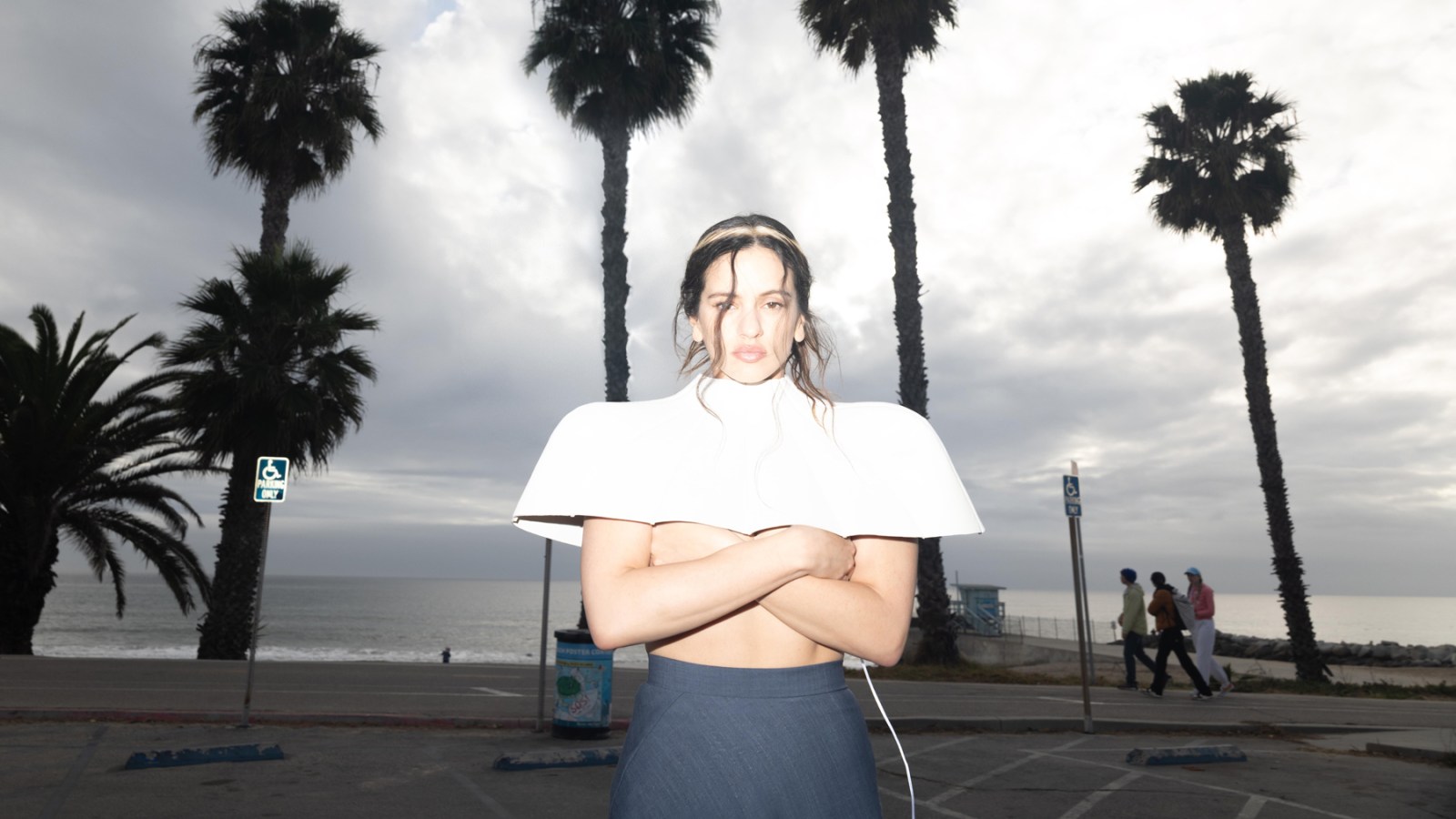Recently, while promoting her new album Lux, Rosalia recorded a TikTok live that shows her in her car, tearing through the night-slicked streets of Madrid, blasting Mozart’s Marriage of Figaro on her sound system while meeting fans on her way to the opulent Plaza Callao. Normally, a moment like that would feel slight, mundane, and almost unremarkable, but somehow those couple of seconds — a modern-day pop star at the wheel, whirring through frenzied intersections with one of music’s most lasting compositions backing her every move — captures the entire ethos of her masterful new album.
Let’s be clear: Lux sounds like absolutely nothing else in music right now, and it’s an album no other pop star could have made. Rosalia, by now, has proven herself to be pop’s most provocative chaos agent, having released radical projects like El Mal Querer, which played with flamenco traditions and pop genres, and Motomami, an exploration of femininity through sharp-eyed production and reggaeton beats. Yet Lux feels like her most atonishing offer yet, packed with history and decades of training that let her tie classical sounds, opera references, and 13 different languages into one gorgeous, gutting package that feels like a truly timeless work of art.
Like anything she does, Lux is already surrounded by controversy and contention. The first single, a baroque spectacle called “Berghain,” complete with a thudding organ, a dramatic choir, operatic vocals in German, and cameos from Bjork and Yves Tumor, immediately divided classical music fans, many who were quick to disavow Rosalia’s efforts as “kitsch.” But Rosalia has never been a purist in any genre, and her goal has always been to land a feeling using whatever tools at her disposal. And she has a lot of tools, given that she’s a trained conservatory musician — she famously studied vocal flamenco performance at the Catalonia College of Music (ESMUC) in Barcelona, which usually accepts only one student per year, and has spoken about how her curriculum included everything from Chopin to Ella Fitzgerald. But she also has a rebellious streak, and part of the irreverence is what makes the Lux such a shock to the system — she’s drawing from the greats but of course this isn’t a classical album; she’s going for Mozart with baddie energy, Bach with a blunt in the mouth.
And ultimately, the album succeeds because every song is deeply thought out and wildly heartfelt, tying back to heady ideas of what the hell we’re all doing here. She contends with pain and loss, anger and grief, sex and desire, love and worship while trying to get a better understanding of who she is, the way she loves, and the spiritual forces that move her. From the second the album starts, with the dramatic organs of the opener “Sexo, Violencia, y Llantas,” she’s trying to find her place in the physical world and whatever realm comes after: “How nice it’d be to live between them both,” she sings. “First I’ll love the world/Then I’ll love God.”
Lux is separated in four sections, or “movements,” as Rosalia sprints off, searching for herself and God in a chaotic world. Through the stunning string arrangement of “Reliquia,” she contemplates all the things she’s lost — her faith, her smile, a friend — traveling from country to country before realizing she’s someone who loves fully, despite whatever pain she’s going through: “But my heart’s never been my own/I always hand it out/Take a piece of me/Keep it for when I’m away.”
On “Focu Ranni,” she works through rage and broken promises (the song alludes to a wedding she was supposed to have) before declaring, “I’ll just belong to me and to my liberty;” on “La Perla,” she tears down effigies, skewering a self-involved man (“national heartbreaker, emotional terrorist, world-class fuck up”) alongside the musica Mexicana singer Yahritza. But the most moving moments are self-revelations, like on “Divinize,” easily the album’s standout. Over dazzling string arrangements and weighty production, she switches from Catalan to Spanish and lies herself bare for others: “Bruise me up I’ll eat all of my pride/I know that I was made to divinize.”
The closing scene is a somber picture, as Rosalia imagines her own casket, adorned with magnolias. “I come from the stars, but today I turn to dust to go back to them,” she sings, a slight echo surrounding her voice like a halo. By then, Lux has ended, and the curtain has fallen, leaving listeners to sit with everything they’ve just heard — and to find themselves in a transformative piece of expression that’s as intense and maximalist as life itself.



